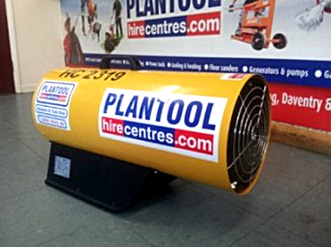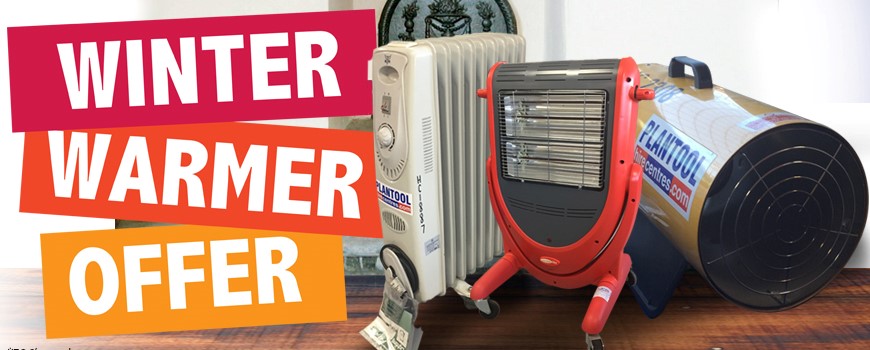Categories
- Access Platform Hire
- Access Tower & Support
- Breaking & Drilling
- Cleaning & Floorcare
- Concrete & Compaction Equipment
- Cutting & Grinding
- Decorating & Site Equipment
- Dehumidifiers, Drying and Flood Restoration Equipment
- Diggers/ Dumpers/Trenchers
- Dust & Fume Extractors
- Flooring & Surface Preparation Equipment Hire
- Gardening and Landscaping
- Heaters
- Hilti Hire
- Lifting, pulling
- Lighting/Power/Welding
- Pumps & Plumbing
- Sanders & Saws
- Full range
- Plant Sales
- Plant Hire
-
Powered Access Hire Locations
- Powered Access Hire Hinckley
- Powered Access Hire Wellingborough
- Powered Access Hire Rugby
- Powered Access Hire Leicester
- Powered Access Hire Coventry
- Powered Access Hire Northampton
- Powered Access Hire Solihull
- Powered Access Hire Redditch
- Powered Access Hire Market Harborough
- Powered Access Hire Birmingham
- Powered Access Hire Dudley
- Powered Access Hire Walsall
- Powered Access Hire Wolverhampton
- Powered Access Hire Peterborough
- Powered Access Hire Blaby
- Powered Access Hire Corby
- Powered Access Hire Leamington Spa
- Powered Access Hire Broughton Astley
- Powered Access Hire Exhall
- Powered Access Hire Rushden
- Powered Access Hire Wigston
- Powered Access Hire Bedworth
- Powered Access Hire Oadby
- Powered Access Hire Kenilworth
- Powered Access Hire Desborough
- Powered Access Hire Knowle
- Powered Access Hire Atherstone
- Powered Access Hire Enderby
- Powered Access Hire Southam
- Powered Access Hire Daventry
- Powered Access Hire Warwick
- Powered Access Hire Kettering
- Powered Access Hire Lutterworth
- Powered Access Hire Nuneaton
- Powered Access Hire Irthlingborough
- Powered Access Hire Alcester
- Powered Access Hire Thrapston
- Powered Access Hire Coleshill
- Powered Access Hire Balsall Common
- Powered Access Hire Earls Barton
- Powered Access Hire Towcester
- Powered Access Hire Raunds
- Powered Access Hire Ibstock
- Powered Access Hire Studley
- Powered Access Hire Shipston on Stour
-
Access Tower & Support Hire Locations
- Access Tower & Support Hire Hinckley
- Access Tower & Support Hire Wellingborough
- Access Tower & Support Hire Rugby
- Access Tower & Support Hire Leicester
- Access Tower & Support Hire Coventry
- Access Tower & Support Hire Northampton
- Access Tower & Support Hire Solihull
- Access Tower & Support Hire Redditch
- Access Tower & Support Hire Market Harborough
- Access Tower & Support Hire Birmingham
- Access Tower & Support Hire Dudley
- Access Tower & Support Hire Walsall
- Access Tower & Support Hire Wolverhampton
- Access Tower & Support Hire Peterborough
- Access Tower & Support Hire Blaby
- Access Tower & Support Hire Corby
-
Plant Hire Locations
-
Concrete Crusher Hire Locations
- Concrete Crusher Hire Daventry
- Concrete Crusher Hire Warwick
- Concrete Crusher Hire Kettering
- Concrete Crusher Hire Lutterworth
- Concrete Crusher Hire Birmingham
- Concrete Crusher Hire Dudley
- Concrete Crusher Hire Walsall
- Concrete Crusher Hire Wolverhampton
- Concrete Crusher Hire Peterborough
- Concrete Crusher Hire Blaby
- Concrete Crusher Hire Corby
- Concrete Crusher Hire Leamington Spa
- Concrete Crusher Hire Broughton Astley
- Concrete Crusher Hire Exhall
- Concrete Crusher Hire Leicester
- Concrete Crusher Hire Coventry
- Concrete Crusher Hire Northampton
- Concrete Crusher Hire Solihull
- Concrete Crusher Hire Rugby
- Concrete Crusher Hire Hinckley
- Concrete Crusher Hire Redditch
- Concrete Crusher Hire Wellingborough
- Concrete Crusher Hire Market Harborough
- Concrete Crusher Hire Rushden
- Concrete Crusher Hire Wigston
- Concrete Crusher Hire Bedworth
- Concrete Crusher Hire Oadby
- Concrete Crusher Hire Kenilworth
- Concrete Crusher Hire Desborough
- Concrete Crusher Hire Knowle
- Concrete Crusher Hire Atherstone
- Concrete Crusher Hire Irthlingborough
- Concrete Crusher Hire Balsall Common
- Concrete Crusher Hire Enderby
- Concrete Crusher Hire Southam
- Concrete Crusher Hire Alcester
- Concrete Crusher Hire Thrapston
- Concrete Crusher Hire Coleshill
- Concrete Crusher Hire Earls Barton
- Concrete Crusher Hire Towcester
- Concrete Crusher Hire Raunds
- Concrete Crusher Hire Ibstock
- Concrete Crusher Hire Studley
- Concrete Crusher Hire Shipston on Stour
- Concrete Crusher Hire Meriden
- Concrete Crusher Hire Crick
- Concrete Crusher Hire Attleborough
- Concrete Crusher Hire Wollaston
- Concrete Crusher Hire Staverton
- Concrete Crusher Hire Lowick
- Concrete Crusher Hire West Bromwich
- Concrete Crusher Hire Loughborough
- Concrete Crusher Hire Stourbridge
- Concrete Crusher Hire Halesowen
- Concrete Crusher Hire Smethwick
- Concrete Crusher Hire Willenhall
- Concrete Crusher Hire Kingswinford
- Concrete Crusher Hire Swadlincote
- Concrete Crusher Hire Tipton
- Concrete Crusher Hire Wednesbury
- Concrete Crusher Hire Coalville
- Concrete Crusher Hire Rowley Regis
- Concrete Crusher Hire Brierley Hill
- Concrete Crusher Hire Melton Mowbray
- Concrete Crusher Hire Oldbury
- Concrete Crusher Hire Stamford
- Concrete Crusher Hire Brackley
- Concrete Crusher Hire Shepshed
- Concrete Crusher Hire Birstall
- Concrete Crusher Hire Wombourne
- Concrete Crusher Hire Oakham
- Concrete Crusher Hire Castle Donington
- Concrete Crusher Hire Oundle
- Concrete Crusher Hire Kegworth
- Concrete Crusher Hire Silverstone
-
Mini Digger Hire Locations
- Mini Digger Hire Hinckley
- Mini Digger Hire Wellingborough
- Mini Digger Hire Rugby
- Mini Digger Hire Coventry
- Mini Digger Hire Northampton
- Mini Digger Hire Leicester
- Mini Digger Hire Solihull
- Mini Digger Hire Market Harborough
- Mini Digger Hire Redditch
- Mini Digger Hire Birmingham
- Mini Digger Hire Peterborough
- Mini Digger Hire Walsall
- Mini Digger Hire Wolverhampton
- Mini Digger Hire Dudley
- Mini Digger Hire Leamington Spa
- Mini Digger Hire Broughton Astley
- Mini Digger Hire Exhall
- Mini Digger Hire Blaby
- Mini Digger Hire Corby
- Mini Digger Hire Coalville
- Mini Digger Hire Swadlincote
- Mini Digger Hire Loughborough
- Mini Digger Hire Rushden
- Mini Digger Hire Bedworth
- Mini Digger Hire Wigston
- Mini Digger Hire Oadby
- Mini Digger Hire Kenilworth
- Mini Digger Hire Irthlingborough
- Mini Digger Hire Atherstone
- Mini Digger Hire Desborough
- Mini Digger Hire Alcester
- Mini Digger Hire Thrapston
- Mini Digger Hire Crick
- Mini Digger Hire Earls Barton
- Mini Digger Hire Enderby
- Mini Digger Hire Balsall Common
- Mini Digger Hire Knowle
- Mini Digger Hire Southam
- Mini Digger Hire Meriden
- Mini Digger Hire Coleshill
- Mini Digger Hire Daventry
- Mini Digger Hire Warwick
- Mini Digger Hire Kettering
- Mini Digger Hire Lutterworth
- Mini Digger Hire Nuneaton
-
Dumper Hire Locations
- Dumper Hire Hinckley
- Dumper Hire Nuneaton
- Dumper Hire Warwick
- Dumper Hire Lutterworth
- Dumper Hire Daventry
- Dumper Hire Kettering
- Dumper Hire Coventry
- Dumper Hire Dudley
- Dumper Hire Leicester
- Dumper Hire Market Harborough
- Dumper Hire Northampton
- Dumper Hire Peterborough
- Dumper Hire Redditch
- Dumper Hire Rugby
- Dumper Hire Solihull
- Dumper Hire Walsall
- Dumper Hire Wellingborough
- Dumper Hire Wolverhampton
- Dumper Hire Blaby
- Dumper Hire Broughton Astley
- Dumper Hire Corby
- Dumper Hire Exhall
- Dumper Hire Leamington Spa
- Dumper Hire Alcester
- Dumper Hire Atherstone
- Dumper Hire Balsall Common
- Dumper Hire Bedworth
- Dumper Hire Burton Latimer
- Dumper Hire Coleshill
- Dumper Hire Crick
- Dumper Hire Desborough
- Dumper Hire Earls Barton
- Dumper Hire Enderby
- Dumper Hire Irthlingborough
- Dumper Hire Kenilworth
- Dumper Hire Knowle
- Dumper Hire Meriden
- Dumper Hire Oadby
- Dumper Hire Rushden
- Dumper Hire Southam
- Dumper Hire Thrapston
- Dumper Hire Wigston
- Dumper Hire Attleborough
- Dumper Hire Ibstock
- Dumper Hire Lowick
- Dumper Hire Raunds
- Dumper Hire Shipston on Stour
- Dumper Hire Staverton
- Dumper Hire Studley
- Dumper Hire Towcester
- Dumper Hire Wollaston
- Dumper Hire Coalville
- Dumper Hire Halesowen
- Dumper Hire Kingswinford
- Dumper Hire Loughborough
- Dumper Hire Rowley Regis
- Dumper Hire Smethwick
- Dumper Hire Stourbridge
- Dumper Hire Swadlincote
- Dumper Hire Tipton
- Dumper Hire Wednesbury
- Dumper Hire West Bromwich
- Dumper Hire Willenhall
- Dumper Hire Birmingham
-
Concrete Crusher Hire Locations
Heating your workspace – finding the right solution for the job
When working in cold conditions, particularly during the winter months, adequate heating, (whether it’s on a building site, a warehouse, an office or at home) is vital. However, all heaters are not equal in size or specification and selecting the right one for the job can make a real difference. Before you jump into purchasing or hiring a heater, it might be worth asking yourself a few questions:
- What exactly do you want to heat?
- Why do you need the heater?
- What sort of space are you going to be using it in?
- Are you going to run it in short or long bursts?
The answers to these questions matter when deciding which heater you should choose. You might simply want to heat a workspace to make it a pleasant environment to operate. In which case, you’re looking at generally heating up the air in a room, with the likes of a convection heater. Then again, if you are looking to heat a particular area - to dry out a section of wall, for instance - then you’ll want a heater that can apply its heat directly, like a radiative heater.
Space itself can make a difference: is it big or small? Is it ventilated? If so, how? Finding the ideal heater for the job can be quite difficult with these variables. You need something powerful enough to heat the space, but you must also consider safety aspects and you don’t want to be wasteful with the heat produced. With all of this in mind, let’s look at some different types of mobile heaters.
Oil-filled radiators
If you’re inside and you’ve got available power, an electric heater is probably a good option. Oil-filled radiators can be found in many homes as an ideal source of additional mobile heat. Radiators heat up the air in a room, warming up a space fairly evenly. Radiators, however, work best in areas where the heat can’t escape, be it through open spaces or thin, poorly insulated walls.
Fan heaters
Fan heaters can heat up a room quickly and can deal a little better with poorly insulated environments, but are, of course, more expensive to run than oil-filled radiators, particularly when used for an extended period. Used together with a dehumidifier, they can be an effective way of drying out damp rooms.

Radiative heaters
Radiative electric heaters give a very powerful direct source of heat, particularly useful for drying out areas of damp on walls or heating a worker at their workstation. Again, requiring more power than an oil-filled radiator, safe use is also something to consider with both fan and radiative heaters. They should be placed carefully and, ideally, not be left unattended. Alternatively, radiative gas heaters or cabinet heaters are also an option if an electricity supply is not available. These heaters are fueled by butane gas cylinders.
Direct gas and oil fired heaters
Direct gas and oil fired heaters are powerful and fan assisted. They can heat up a space extremely quickly, but do require an electricity supply. They also need to run in well-ventilated areas. Direct gas heaters use a naked flame, so care must be taken with the risk of introducing carbon-monoxide into the workspace. They are perfectly safe if their environment is well-ventilated, but potentially dangerous if not.
Indirect gas and oil fired heaters
Indirect gas and oil fired heaters take the issue of a naked flame away, but are correspondingly more expensive. They provide clean, dry air, but do still require some method of exhaust ventilation when used indoors. We are also back to the problem of a power source, as they do need an electrical supply. Provided you can overcome these issues, indirect gas and oil filled heaters have enormous heat output, and are perfect for heating large indoor spaces such as warehouses.
On a side note, direct and indirect gas and oil-filled heaters often come with an inbuilt thermostat, meaning that – provided you have followed the safe procedure in placing and setting them up in the first place – they can be left to run without supervision.
Plantool have a full range of heaters at our disposal, from electric fan heaters to industrial-strength direct gas systems.
If you are interested in hiring a new heater – we are currently running our “Winter Warmer” heater offer: hire any heater for three weeks and you will receive the fourth week free of charge. Take a look at our full range today, and find the solution best suited to the task at hand.
























































































































































































 Full range
Full range Plant Sales
Plant Sales Plant Hire
Plant Hire Careers at Plantool
Careers at Plantool


 Follow us @hirecentres
Follow us @hirecentres








